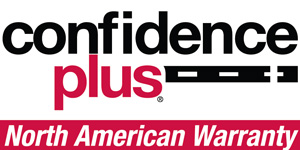Business Hours
- Monday - Friday
- BASHFORD AVE
7:30 AM - 4:30 PM
Phone: (502) 203-0454 - PRESTON HWY
7:00 AM - 4:00 PM
Phone: (502) 230-4279
AMERICAN BRAKE CENTERS INC.
(502) 203-0454 for Bashford Ave or (502) 230-4279 for the Preston Hwy location | 3435 Bashford Ave Ct Louisville, KY 40218
AUTONET TV
Archive for May 2024Something to Latch On To (Hood Latch Safety)Posted May 26, 2024 6:34 AMThe other day, a driver was trying to open his vehicle's hood so he could add some windshield washer fluid. But when he pulled the hood release inside the car, nothing happened. Usually, opening any hood is a 2-step process. You pull the hood release (which is usually a handle under the dashboard to the left of the steering column) and listen for the hood to pop up slightly. (It doesn't open all the way because it has a safety latch to prevent you from accidentally opening it up while you're driving.) Then, you get out and find the latch, usually through the grille near the hood. There's a little handle on it which you push, slide or pull (there are a few different types) at which point the hood can be opened up all the way. But in this driver's case, the hood would not release at all when he pulled the handle inside. Not knowing what to do, he called his service advisor, who told him to bring it over. The reason? A hood with a broken latch could be a safety hazard since it is possible it's not securely closed. And in this condition, it's possible for the hood to suddenly release while you are driving, obscuring your view of the road. Latch issues can be caused by many things, perhaps a broken cable between the hood release and the latch. It's possible that cable just detached or frayed after being opened so many times. If a hood release cable isn't kept lubricated, it can corrode and just lock up. In this driver's case, the cable had corroded and broken, so it had to be replaced. Unfortunately, many times you won't know you have a problem with your hood latch until one time you pull it and it breaks without warning. When your vehicle is in for routine maintenance like an oil change, a technician will often keep an eye out for signs that your hood latch needs attention so you don't get "locked" out of your engine compartment. American Brake Centers Inc. Fears and Gears (Signs of Automatic Transmission Problems)Posted May 19, 2024 4:10 AMAutomatic transmissions rule. The old days of shifting your own gears are a thing of the past for most drivers. But automatic transmission trouble can be a big inconvenience for any driver if it comes at the wrong time in the wrong place. Here are some signs to look out for that may mean you are having transmission issues. When you are driving, your vehicle seems to slip in an out of gear without you touching anything. That's what some call, not surprisingly, a "slipping transmission." When your vehicle shifts from one gear to the next, you hear a loud "clunk." Transmissions are supposed to be nearly silent when they shift, so that noise is telling you something is wrong. If you notice there's a puddle of some fluid under your vehicle, your transmission could be leaking fluid. Try to figure out what color it is (try putting a piece of cardboard underneath to capture some of the fluid). If it is red or brown, that's a sign it could be transmission fluid. Sometimes you may smell the transmission fluid, too; it has what some consider a "sweet" odor. You may have a warning light that goes on when your transmission fluid is low (it could be a special transmission symbol or simply the Check Engine light). That light could also mean the fluid is too hot or has low pressure. If you shift your vehicle into D (for Drive) and it doesn't move or slowly engages after some delay, you may be seeing the start of a serious problem. Of course, you don't want a malfunctioning transmission to strand you at some inopportune time. So if your vehicle is showing any of these signs, arrange a time for a technician to check it out. Not only are broken transmissions an inconvenience, they can be a safety hazard, too. American Brake Centers Inc. The Best Book that's Not a Best-SellerPosted May 12, 2024 4:10 AMSometimes the movie is better than the book, sometimes it's the other way around. But when it comes to your vehicle, the best book of all is the owner's manual. The plot is simple: Owner wants long life and dependable performance from the vehicle, manual has the way to achieve that long life and dependable performance. And yet, it's amazing that some people will own a vehicle for years and never even crack this book. They'll only read it when they absolutely have to, for things like finding out how to change the clock. Ok, so you're probably not going to rush right over to your glove box and start reading the owner's manual cover to cover. We know that. But just think of what you can get out of it. Consider this. Those who wrote or helped write this book include the engineers who designed it and the people who tested and refined it. They know more about your vehicle than anyone, period. They know how long a part is likely to last and what you need to do to take care of it. They know how far a distance or how long a time you can drive before you have to change certain fluids in it. They know what temperature it can reach before things will start to break. And they've put your vehicle model through torture, testing it in the absolute worst conditions to see how to make it stand up to more abuse than it will ever receive. They've then torn it down, examined it and, in many cases, redesigned the parts to make them even better. And they've put down—in fairly minute detail—this blueprint that, if you and our experts at American Brake Centers Inc. follow their suggestions, will make it very likely that your vehicle will serve you well for a long time. If you don't follow those suggestions, all bets are off. We didn't even mention that the owner's manual tells you how to operate everything in your car. How to adjust the heat and air conditioning, how to pair your smartphone with the audio system, how to program your key fob so it won't sound the horn when you lock your vehicle. Have you lost your manual or did you buy a vehicle that didn't come with one? Many are available either online or in paper form. If you don't know where to begin with such a long book, try a couple of pages a week, just three minutes. You’ll discover your vehicle does things you never even knew it could do. And the movie will never be as good.
What You Need to Know from Your American Brake Centers Inc. Service AdvisorPosted May 5, 2024 4:10 AMLouisville drivers may feel intimidated when they take their vehicles to a service center. They have questions but aren't sure how to ask. They don't want to feel embarrassed about their lack of knowledge. They don't want to make the service technician feel that they don't trust him. American Brake Centers Inc.
| ||
SearchArchiveJune 2019 (18)July 2019 (4) August 2019 (4) September 2019 (5) October 2019 (4) November 2019 (4) December 2019 (5) January 2020 (5) February 2020 (4) March 2020 (5) April 2020 (4) May 2020 (5) June 2020 (4) July 2020 (4) August 2020 (5) September 2020 (4) October 2020 (4) November 2020 (5) December 2020 (4) January 2021 (6) February 2021 (4) March 2021 (4) April 2021 (4) May 2021 (5) June 2021 (4) July 2021 (4) August 2021 (5) September 2021 (4) October 2021 (5) November 2021 (4) December 2021 (4) January 2022 (6) February 2022 (4) March 2022 (4) April 2022 (4) May 2022 (5) June 2022 (4) July 2022 (5) August 2022 (4) September 2022 (4) October 2022 (5) November 2022 (4) December 2022 (4) January 2023 (5) February 2023 (4) March 2023 (4) April 2023 (5) May 2023 (4) June 2023 (4) July 2023 (5) August 2023 (4) September 2023 (4) October 2023 (5) November 2023 (4) December 2023 (5) January 2024 (5) February 2024 (4) March 2024 (5) April 2024 (4) May 2024 (4) June 2024 (5) July 2024 (4) August 2024 (4) September 2024 (5) October 2024 (4) November 2024 (4) December 2024 (5) January 2025 (4) February 2025 (4) March 2025 (5) | CategoriesWhat Customers Should Know (41)Fuel Economy (6)Tires and Wheels (1)Timing Belt (3)Fluids (3)Maintenance (7)Service Intervals (1)Alignment (4)Check Engine Light (4)Steering (4)Exhaust (5)Shocks & Struts (1)Air Conditioning (4)Brakes (10)Older Vehicles (1)Cooling System (3)Battery (3)Water Pump (1)Oil Change (5)Transmission (2)Tires (2)Customer Detective Work (1)Fuel Saving Tip: Slow Down (1)Fuel System (1)Auto Safety (3)Keys to a long lasting vehicle (2)Windshield Wipers (2)Alternator (2)Automotive News (1)TPMS (1)Headlamps (2)Service Standards (2)Cabin Air Filter (1)Fuel Pump (1)Winter Prep (2)Safety (2)Shocks and Struts (1)Drive Train (2)Inspection (3)Engine Air Filter (1)Dashboard (1)Spark Plugs (1) | |











